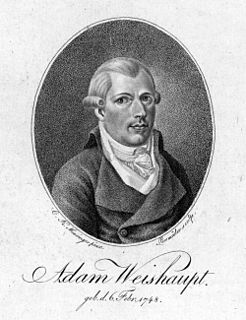A Quote by Marcus Tullius Cicero
Whatever is done without ostentation, and without the people being witnesses of it, is, in my opinion, most praiseworthy: not that the public eye should be entirely avoided, for good actions desire to be placed in the light; but notwithstanding this, the greatest theater for virtue is conscience.
Related Quotes
When we are securely rooted in personal intimacy with the source of life, it will be possible to remain flexible without being relativistic, convinced without being rigid, willing to confront without being offensive, gentle and forgiving without being soft, and true witnesses without being manipulative.
The fact that only humans above a certain age can be morally virtuous, rather than babies or cats, means that that being moral requires some cognitive ability. If virtue is about desires, it is worth remembering that you can't desire some things without being able to conceive of them. Suppose a virtuous person will desire to make people happy and desire to tell the truth. You can't desire to make people happy without having the concept "happy" and you can't desire to be truthful if you don't have have the concept "lie", so a cat or a baby cannot desire these things.
Public virtue cannot exist in a nation without private, and public virtue is the only foundation of republics. There must be a positive passion for the public good, the public interest, honour, power and glory, established in the minds of the people, or there can be no republican government, nor any real liberty: and this public passion must be superiour to all private passions.
Muscles without strength, friendship without trust, opinion without risk, change without aesthetics, age without values, food without nourishment, power without fairness, facts without rigor, degrees without erudition, militarism without fortitude, progress without civilization, complication without depth, fluency without content; these are the sins to remember.
Notwithstanding the trouble, notwithstanding the argument, notwithstanding the increasingly heavy hand of government, notwithstanding the spirit of arrogance we so often display, notwithstanding the growing tide of pornography and permissiveness, notwithstanding occasional corruption in public office and betrayal of sacred trust-I marvel at the miracle of America.
If love is the soul of Christian existence, it must be at the heart of every other Christian virtue. Thus, for example, justice without love is legalism; faith without love is ideology; hope without love is self-centeredness; forgiveness without love is self-abasement; fortitude without love is recklessness; generosity without love is extravagance; care without love is mere duty; fidelity without love is servitude. Every virtue is an expression of love. No virtue is really a virtue unless it is permeated, or informed, by love.
There is no way of influencing men so powerfully as by means of the women. These should therefore be our chief study; we should insinuate ourselves into their good opinion, give them hints of emancipation from the tyranny of public opinion, and of standing up for themselves; it will be an immense relief to their enslaved minds to be freed from any one bond of restraint, and it will fire them the more, and cause them to work for us with zeal, without knowing that they do so; for they will only be indulging their own desire of personal admiration.
Demean thyself more warily in thy study than in the street. If thy public actions have a hundred witnesses, thy private have a thousand. The multitude looks but upon thy actions; thy conscience looks into them: the multitude may chance to excuse thee, if not acquit thee; thy conscience will accuse thee, if not condemn thee.
People ask me many times, "Aren't you afraid you're going to scare people? Aren't you afraid you're going to make people feel bad about the human race?" I look at it as entirely the opposite. Something you can understand and identify should be less frightening than something you can't. And to understand that there are people who are capable of acting without conscience, without considering other people at all, explains a lot of things.











































